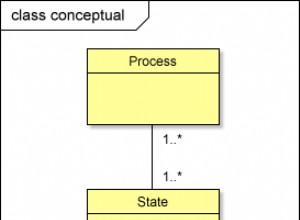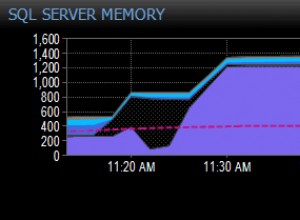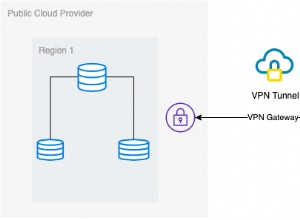Ora ho confrontato questa situazione e sono giunto alla conclusione che c'è una significativa perdita di prestazioni molto probabilmente a causa dei cambi di contesto PL/SQL, quando si aggiunge 1 trigger. La perdita è di fattore 8 nel mio benchmark. L'aggiunta di un secondo trigger "compatibile", tuttavia, non ha più alcun impatto significativo. Per "compatibile", intendo che entrambi i trigger si attivano sempre allo stesso evento in qualsiasi ordine.
Quindi sto concludendo che molto probabilmente c'è solo 1 SQL -> PL/SQL cambio di contesto per tutti i trigger
Ecco il benchmark:
Crea una tabella
-- A typical table with primary key, creation/modification user/date, and
-- other data columns
CREATE TABLE test(
id number(38) not null, -- pk
uc varchar2(400) not null, -- creation user
dc date not null, -- creation date
um varchar2(400), -- modification user
dm date, -- modification date
data number(38)
);
... e una sequenza
CREATE SEQUENCE s_test;
Un tipico ID impostazione trigger, utente/data di creazione/modifica
CREATE OR REPLACE TRIGGER t_test BEFORE INSERT OR UPDATE
ON test
FOR EACH ROW
BEGIN
IF inserting THEN
SELECT s_test.nextval INTO :new.id FROM dual;
:new.uc := USER;
:new.dc := SYSDATE;
:new.um := NULL;
:new.dm := NULL;
END IF;
IF updating THEN
:new.um := USER;
:new.dm := SYSDATE;
:new.uc := :old.uc;
:new.dc := :old.dc;
END IF;
END t_test;
Inserisci 1000, 10000, 100000 record
declare
procedure run (limit number) is
t timestamp;
begin
t := systimestamp;
insert into test (data)
select level from dual connect by level < limit;
dbms_output.put_line(to_char(systimestamp - t));
rollback;
end;
begin
run(1000);
run(10000);
run(100000);
end;
Risultati
-- ------------------------------------
-- +000000000 00:00:00.086603000
-- +000000000 00:00:00.844333000
-- +000000000 00:00:08.429186000
-- ------------------------------------
Un altro trigger "compatibile" (ordine di esecuzione irrilevante)
CREATE OR REPLACE TRIGGER t_test_other BEFORE INSERT OR UPDATE
ON test
FOR EACH ROW
BEGIN
:new.data := 42;
END t_test_other;
Risultati di un'altra esecuzione dello script di test
-- ------------------------------------
-- +000000000 00:00:00.088551000
-- +000000000 00:00:00.876028000
-- +000000000 00:00:08.731345000
-- ------------------------------------
Disattiva i trigger
alter trigger t_test disable;
alter trigger t_test_other disable;
Esegui uno script di test leggermente diverso
declare
procedure run (limit number) is
t timestamp;
begin
t := systimestamp;
insert into test (id, uc, dc, data)
select s_test.nextval, user, sysdate, level from dual
connect by level < limit;
dbms_output.put_line(to_char(systimestamp - t));
rollback;
end;
begin
run(1000);
run(10000);
run(100000);
end;
Risultati
-- ------------------------------------
-- +000000000 00:00:00.012712000
-- +000000000 00:00:00.104903000
-- +000000000 00:00:01.043984000
-- ------------------------------------




